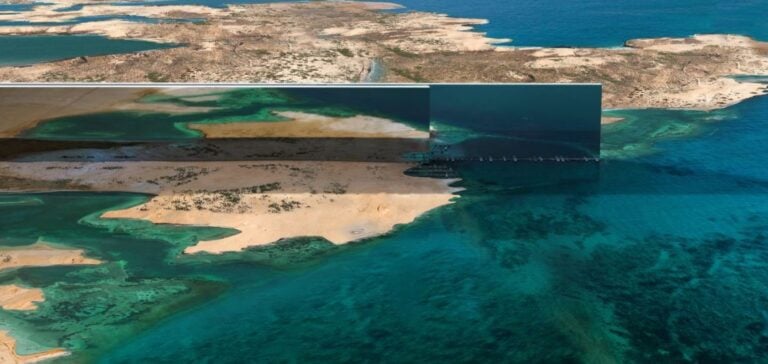Aramco’s new public offering is part of Prince Mohammed bin Salmane’s strategy to finance the kingdom’s ambitious economic reforms.
Background and Objectives of the Public Offering
Under the leadership of Crown Prince Mohammed bin Salmane, Saudi Arabia is pursuing a bold strategy to transform its oil-dependent economy. Aramco‘s new public offering of 1.5 billion shares, planned to raise up to $12 billion, is a key initiative in this context. This operation is part of the Vision 2030 program, which aims to diversify the Saudi economy and reduce its dependence on oil. Riyadh is also investing heavily in renewable energies, as are other countries on the Arabian Peninsula.
The funds raised should help finance pharaonic projects such as Neom, a futuristic megalopolis valued at $500 billion. However, many analysts remain sceptical about the feasibility of these ambitious projects. According to Robert Mogielnicki of the Arab Gulf States Institute in Washington, the expected investments are more a “fiscal boost” than a long-term solution to the country’s financing needs.
Challenges and delays in Vision 2030 projects
Saudi Arabia’s reform plans have been subject to delays and revisions. In 2019, only 1.5% of Aramco’s shares were listed on the Saudi Stock Exchange, generating $25.6 billion, far from the initial targets. Transparency and a reluctance to sell domestic resources to foreign investors have dampened initial momentum. In addition, efforts to attract foreign direct investment have not been as successful as expected, falling short of the 5.7% GDP target set out in Vision 2030.
Ellen Wald, author of a book on Aramco, points out that foreign investment in non-energy projects in Saudi Arabia is mainly driven by government subsidies. The kingdom’s sovereign wealth fund continues to seek funding, and Aramco remains a reliable source of financing due to its exceptional profitability.
Prospects and Progress of Futuristic Projects
Despite the challenges, some Vision 2030 projects are making progress. The Red Sea Global project, for example, inaugurated two beach resorts last year, with a further 14 hotels planned by the end of 2025. However, the initial objectives of some projects, such as Neom, have been revised downwards. Media sources report that ambitions in terms of size and population have been scaled back, although the authorities have not confirmed this information.
Jim Krane, from the University of Houston, believes that the delays were to be expected, given the scale of the “giga-projects”. He adds that Aramco’s low-cost oil production remains a major asset for the kingdom, enabling it to support these projects financially over the long term.
Saudi analyst Mohammed ben Saleh offers a more optimistic outlook, claiming that non-oil GDP growth of 4.6% in 2023 demonstrates that Vision 2030 is “on the right track”. However, he recognizes that national transformation is a long-term process, requiring patience and ongoing investment.
As Saudi Arabia prepares to host global events such as the 2030 World Expo and the 2034 Soccer World Cup, additional sales of Aramco shares could be considered to finance these initiatives. Analysts agree that demand for these shares will remain high, thanks to the oil company’s stability and profitability.






















